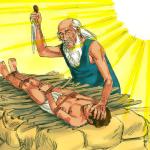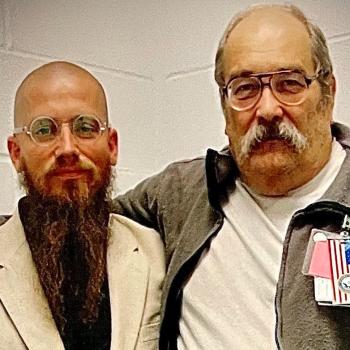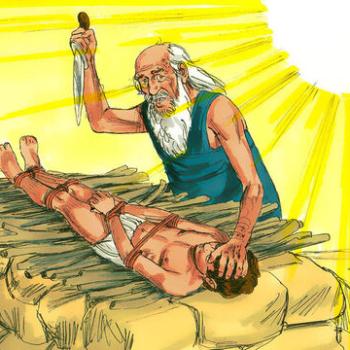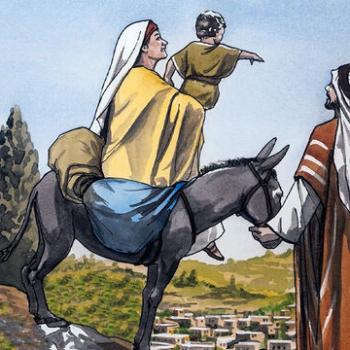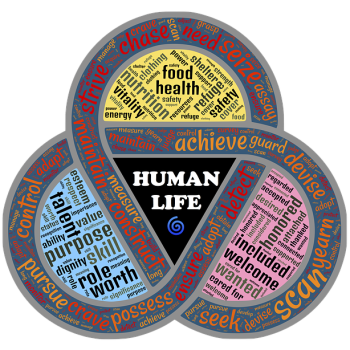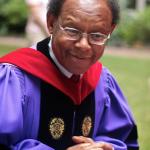Every year, the gospel for the Second Sunday of Easter is that of John 20: 19-31, which includes the story of doubting Thomas. Every year, I think: “Thomas is getting a bum rap!”
After all, would any other apostle in the same situation have had more faith? If any other apostle had been absent when Christ appeared to those assembled, might that person have expressed the same doubts?
You have to admit that the story of Christ’s appearance was pretty incredulous. “Hey, Thomas! You’ll never guess who dropped by while you were gone.” Was this a joke? Were the other apostles pulling his leg and giving him a hard time for being away?
We do not know much about the personal characteristics of each of the apostles, so we don’t know if Thomas was known for being a doubter or a cynic. Maybe he was always the guy who brought up the negatives and was hard to convince.
Needing to See to Believe
On the other hand, maybe any one of them would have reacted the same. It’s human nature to doubt what you haven’t seen for yourself. How many times have you said, “Really? Let me see.”
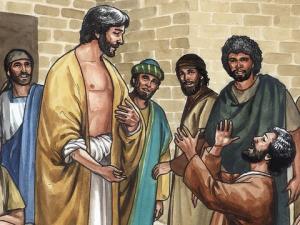
Think about all the people who don’t believe Americans traveled to the moon, or don’t believe the Holocaust happened, or don’t believe that bread and wine are transformed into the body and blood of Christ in the Eucharist. If they can’t see it for themselves . . . .
We are being somewhat hypocritical to point a finger at Thomas and say, “Oh ye of little faith!” Thomas just serves as an example of how the rest of us behave, over and over again, unfortunately.
Maintaining Strength of Faith
Another important lesson from the Thomas the Apostle Affair was pointed out by our celebrant in his homily on the Second Sunday of Easter. Because Thomas missed a gathering of the apostles, it’s possible that his faith weakened as a result.
Times were tough. Jesus had died. His resurrection was speculation. Without the support of his fellow apostles, under tremendous pressure from society, and while deeply grieving over the death of Jesus, Thomas was vulnerable.
Was Thomas away from the other disciples for very long? Was he alone long enough to start questioning everything? Could he have wondered if following Jesus had been one big mistake?
Joining together with the other apostles again gave Thomas new revelations about Christ. He had been seen! He had spoken to the apostles! Then the next Sunday, he saw Jesus for himself and learned a lesson from Him.
Isn’t that exactly what happens when we attend Mass? Our faith is bolstered by those around us. We learn lessons. We are in the presence of Christ.
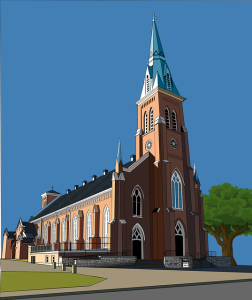
When we miss Mass, we miss the opportunity for a lesson in our faith, so it weakens, even if ever so slightly. Certainly, if we miss Mass a lot, our faith weakens noticeably. We feel the loss of community, especially the loss of being in communion with Christ.
Two Lessons in Faith
The moral to the story of Thomas is usually presented as “Blessed are those who have not seen and have believed.” The saying “seeing is believing” does not apply to matters of faith. Most of us have not seen a Marian apparition or a miracle, but we believe because of the testimony of others and our faith in Jesus, just as Thomas should have believed in the testimony of his fellow apostles and the promises of Jesus.
In addition, however, there is another very important lesson: “Go to church! Go to church! Go to church!” That means every Sunday, just as God directed us to do in the Third Commandment: Keep Holy the Sabbath Day.
We can’t be sloppy, occasional church-goers whose benefit from attendance is not much more than taking the occasional vitamin. We need maintenance doses for continued health. We need a regular regimen of strength training to exercise the faith muscles.
Just as people go to a gym to learn from the trainer and work out with others with similar goals, so we go to church to learn from the Word of God, and we are motivated by the Christian community around us.
Thomas’s doubts were a normal human reaction; nonetheless, they exhibit a weakness of faith that is a challenge to all of us. In addition, his absence from that critical gathering exemplifies the importance of going to Mass at every opportunity. It’s always an event that we don’t want to miss.



